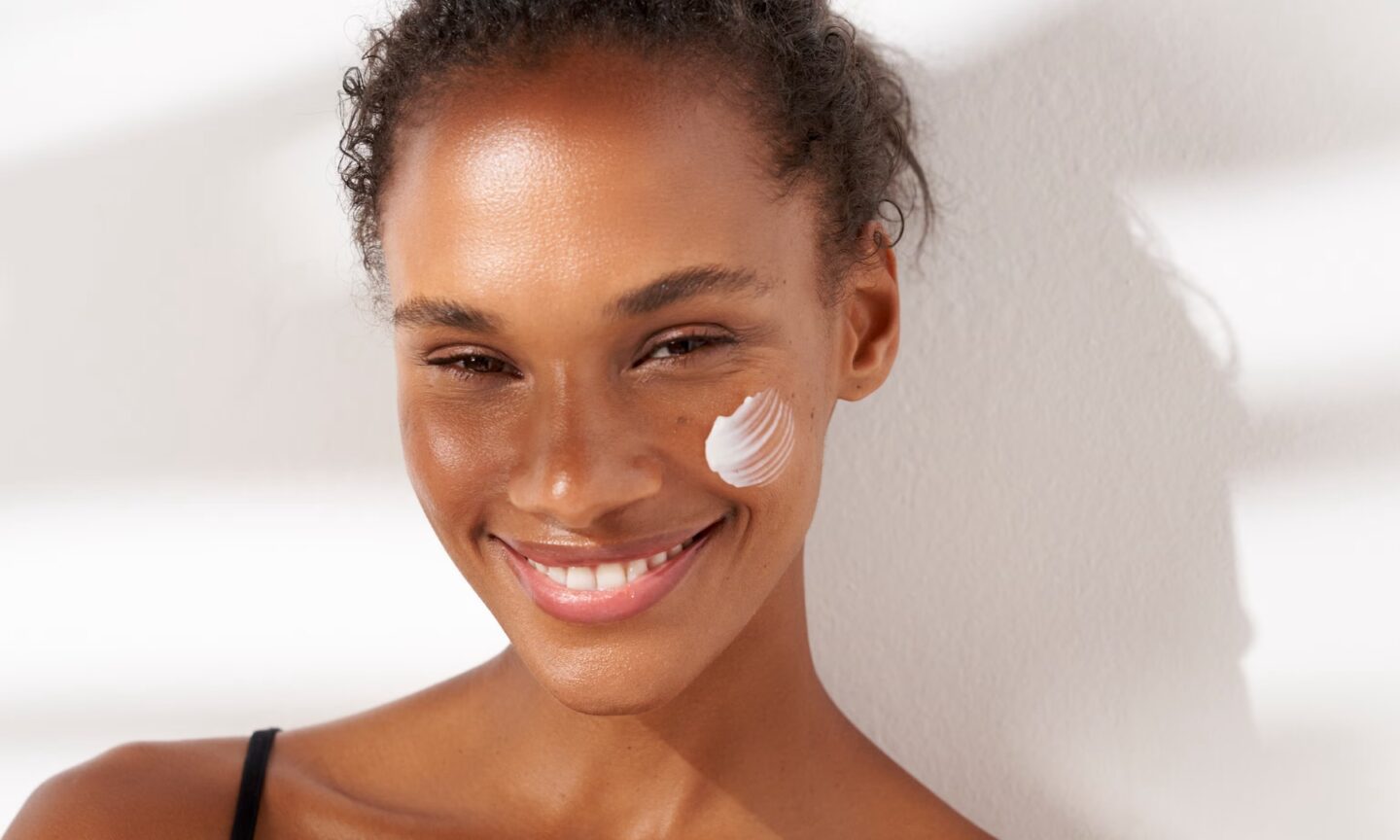An Expert Guide to Microalgae

They say big things come in small packages, and no ingredient epitomises this more than microalgae, the microscopic aquatic plants delivering a host of skincare benefits.
Rich in nutrients and resilient by nature, microalgae have long been used in wellness, but they’re now gaining prominence in skincare. So, what makes microalgae such a formula-worthy ingredient, and how exactly does it benefit the skin?
We spoke to two experts — advanced facial aesthetician Dr. Tara Francis and consultant dermatologist Dr. Sina Ghadiri — to better understand this powerhouse ingredient.
What is microalgae?
“Microalgae are microscopic aquatic plants, often sourced from freshwater or marine environments,” explains Dr. Francis. “They’re incredibly nutrient-dense and have been used in wellness and skincare for their antioxidant, anti-inflammatory, and regenerative properties.”
Dr. Sina Ghadiri agrees, adding that microalgae are “usually single-celled organisms that thrive in marine, freshwater and even soil environments. Despite their size, they’re packed with amino acids, antioxidants, vitamins, essential fatty acids like omega-3s, and complex carbohydrates.” And it is these properties that make them ideal for tackling modern skin concerns.
There are a number of microalgae species, including spirulina, chlorella, and Dunaliella salina, with each offering slightly different benefits. But what unites them is their ability to survive in extreme environments — a trait that translates into highly resilient bioactive compounds when applied to the skin.
Today, microalgae used in skincare are increasingly grown through biotechnology in controlled environments, which is a more sustainable alternative to wild harvesting. This approach not only reduces environmental impact but also ensures greater consistency in the composition of active compounds.
What’s the difference between microalgae and seaweed?
Although often grouped together, microalgae and seaweed are not the same. Microalgae are typically single-celled organisms cultivated in lab-like conditions, while seaweed, or macroalgae, are visible, multicellular marine plants harvested from the ocean.
While both offer a number of skincare benefits, microalgae provide a more controlled and sustainable option, with bioactives that can be precisely tailored through strain selection and lab cultivation.
How does microalgae benefit the skin?
“Microalgae act as multifunctional ingredients,” says Dr. Ghadiri. “They have antioxidant, hydrating, barrier-protective, and anti-inflammatory effects. Some help neutralise free radicals from UV exposure or pollution, while others support collagen production or strengthen the skin barrier.”
According to Dr. Francis, specific species of microalgae can hydrate the skin, support collagen synthesis, and regulate sebum production, making them especially helpful for oily or acne-prone skin types. “Certain strains may improve firmness and elasticity by stimulating fibroblasts,” she adds. “Others help reduce trans-epidermal water loss, boost hydration, and calm irritated or sensitive skin.”
Does microalgae have any downsides?
As with most active ingredients, the benefits of microalgae depend on the quality and concentration used.
“While microalgae are generally well-tolerated and suitable for most skin types, including sensitive skin, their effects can be subtle and cumulative — so consistency is key,” says Dr. Francis.
Ghadiri adds that “some algae-based products may be costly due to the complexity of sustainable cultivation and extraction, and while early studies are promising, more robust clinical trials are needed to fully validate their benefits.”
It’s also worth noting that certain algae-derived ingredients may cause irritation when combined with strong actives, particularly in reactive skin.
Formulation also plays a key role. Some bioactive compounds found in microalgae, such as carotenoids and polysaccharides, can degrade when exposed to light, heat, or oxygen. That’s why encapsulation or advanced delivery systems are often used to preserve their potency and improve absorption.
Is microalgae worth the hype?
Absolutely. For the experts, microalgae are far more than a passing trend. These potent, naturally derived ingredients take a multi-pronged approach to skin health — from boosting hydration and shielding against pollution to supporting collagen and soothing sensitivity.
Where can I find microalgae?
With growing recognition of their benefits, microalgae are finding their way into an ever-wider range of skincare products. Discover our microalgae favourites in the edit below.
Alpha-H Firming Peptide Body Oil with Hexapeptide-8
Alpha-H’s quick-dry body oil blends omega-rich macadamia and microalgae oils with Hexapeptide-8 to help smooth skin, support elasticity, and minimise the look of fine lines and wrinkles, and tech neck. Lightweight yet nourishing, it leaves skin soft, luminous, and hydrated.
Comfort Zone Skin Regimen Microalgae Essence
This hydrating, 98.5% natural-origin essence is powered by unicellular microalgae and Skin Regimen’s Longevity Complex to refresh, rebalance, and prep skin. The silky lotion boosts moisture, comfort, and radiance while its aromatic blend of juniper, cedar, and jasmine offers a revitalising sensory lift.
Omorovicza Queen Serum
Clinically proven to brighten and reduce wrinkle depth in just 30 minutes, this serum harnesses Mediterranean microalgae for a retinol-like effect without irritation, making it suitable for even sensitive or menopausal skin. Lithops stem cells help strengthen and plump, while Chinese leaf extract works to lift and smooth.
Algenist Genius Ultimate Anti-Aging Eye Cream
Algenist’s rich eye cream combines Alguronic acid, microalgae oil, and plant-based collagen to firm, hydrate, and smooth the delicate eye area. Persian silk tree extract targets sagging upper lids while reducing fine lines and boosting luminosity for a multi-tasking approach to eye care.
111Skin Vitamin C Brightening Cleanser
This radiance-boosting gel cleanser is formulated with vitamin C, peptidic microalgae, and glucoside complex to gently exfoliate, even tone, and reduce redness. It sweeps away impurities while brightening dark spots and protecting against environmental stress.
Tata Harper Fortifying Moisturizer
Formulated for dry, sensitive skin, this lightweight, fragrance-free moisturiser uses microalgae peptides, hyaluronic acid, and plant extracts to strengthen the skin barrier, restore balance, and hydrate. It helps reduce redness and roughness while protecting against environmental aggressors.
All products featured on this page have been hand-picked by our editorial team. However, we may earn a commission on some items. If you purchase something through a link on our site, BeautyNewsDaily may earn an affiliate commission.